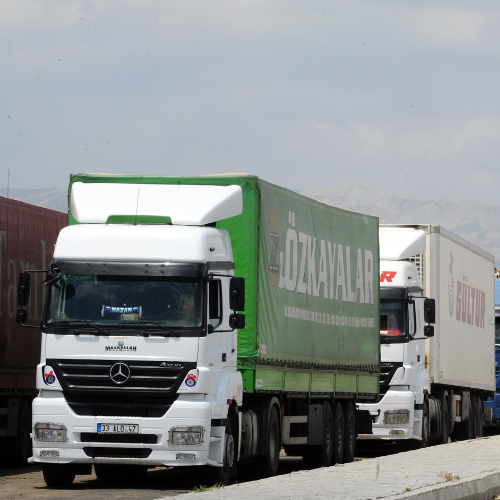The tough sanctions imposed by the European Union (EU) on Iran are causing major challenges for Iranian truckers. These truckers, who play a key role in moving goods across Europe, are now struggling to keep their jobs and continue working. However, some have found creative ways to overcome the difficulties.
The Impact of EU Sanctions on Iranian Truckers
Since the EU imposed new sanctions on Iran, life has become much harder for Iranian truckers. Before the sanctions, around 60,000 Iranian truckers were regularly traveling across Europe, delivering all kinds of goods. But now, many of them have either lost their jobs or are finding it extremely difficult to continue working.
One of the main problems they face is getting the necessary visas to cross EU borders. In the past, Iranian truckers could easily get these visas from countries like Germany and Italy. But due to the new sanctions, these countries have slowed down their visa processes, and it now takes over three months to get approval. France, which used to issue permits to truckers, has completely stopped giving out visas since early 2023.
China Sanctions 3 US Firms Over Weapons Sales to Taiwan
Another issue is insurance. Iranian truckers need special third-party insurance, called Green Card insurance, to travel on European roads. This insurance is essential because it covers accidents or damages caused by the truckers while driving in different countries. But now, Iranian truckers are struggling to get this insurance because of the EU sanctions, which prevent Iranian companies from issuing these Green Cards.
The Role of Intermediaries and Speculators
With both visas and insurance becoming harder to get, many Iranian truckers are turning to middlemen or intermediaries to help them. These intermediaries act as go-betweens, helping drivers obtain the documents they need. However, these services come with a significant cost.
For example, Iranian truckers who cannot get Green Card insurance from Iran are buying it from neighboring countries like Iraq, Afghanistan, and Turkey. These third-party insurance policies are expensive—some drivers pay up to three times the usual cost to get the insurance they need to enter Europe.
Visa processes have also become dominated by speculators—people who act as middlemen in getting visas. Iranian truckers have complained that without these speculators, it’s nearly impossible to get a visa on their own. The fees for these services are very high, making it tough for the drivers to earn a decent living.
Rising Competition from Other Countries
Because of the sanctions and the challenges they create, fewer and fewer Iranian truckers are seen on European roads. In their place, trucks from countries like Turkey, Georgia, and Greece have taken over. These countries are not affected by the same sanctions and can easily issue visas and Green Card insurance for their truckers.
OFAC Sanctions Gemini Marine for Illicit Transportation of Russian and Iranian Oil
According to Ali Mahmoudi Sarai, the chairman of the board of directors of the Iranian Transport and Logistics Federation, Turkish trucks have taken over most of the routes previously used by Iranian truckers. They are now transporting goods between Europe and Iran, filling the gap left by the Iranian truckers. This shift has also caused many Iranian truckers to lose their jobs, as the goods they used to transport are now being handled by foreign trucks.
Reza Rostami, chairman of the Transport, Transit, and Logistics Commission at the Iran Chamber of Commerce, states that many businesses now favor hiring foreign drivers from Turkey and Georgia due to the lower costs and ease of the process. These foreign drivers come to Iran with valid Green Card insurance, and they charge lower fees, which is more attractive to business owners. Unfortunately, this means that Iranian truckers are left out of work, and the trucking industry in Iran is shrinking.
The Struggles Don’t End at Europe’s Borders
The struggles of Iranian truckers aren’t just limited to the EU. They are also facing challenges in other countries, even in places that have better relations with Iran, like Russia and Belarus. Despite the political ties between these countries, Iranian truckers still need to go through visa speculators to obtain the necessary documents, which is both time-consuming and costly.
Even on Russian roads, very few Iranian truckers are still operating, and those who do are mostly driving specialized trucks, like refrigerated trucks. This makes it even harder for them to make a living, as the demand for their services is much lower.


